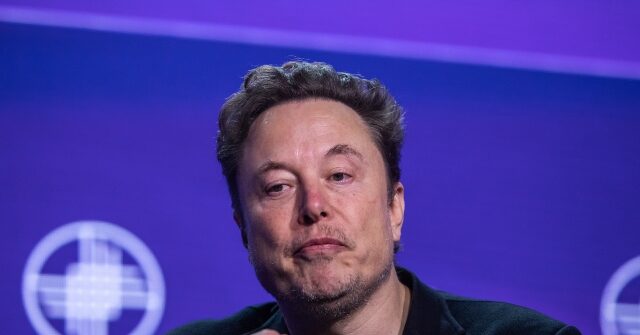A hacker reportedly uncovered critical electronic data that Tesla claimed it didn’t have, shedding new light on a fatal 2019 crash involving the company’s Autopilot technology. The subsequent trial resulted in a verdict of $243 million against Elon Musk’s EV giant.
The Washington Post reports that a fatal 2019 Tesla crash in Key Largo, Florida, which killed 22-year-old Naibel Benavides Leon and severely injured her boyfriend, Dillon Angulo, has been at the center of a wrongful death lawsuit against Tesla. The plaintiffs allege that the company’s Autopilot technology failed to alert the driver of the Tesla, George McGee, to the couple’s presence on the road ahead, ultimately leading to the tragic collision.
Breitbart News recently reported on the jury’s verdict that Elon Musk’s Tesla was partially responsible for the crash:
The lawsuit centers around a deadly crash that took place in Key Largo, Florida, involving a Tesla Model S electric sedan driven by George McGee. At the time of the incident, McGee was using Tesla’s Enhanced Autopilot, a partially automated driving system.
According to court testimony, McGee dropped his mobile phone while driving and attempted to retrieve it, believing that Enhanced Autopilot would brake if an obstacle was in the way. However, he accelerated through an intersection at just over 60 miles per hour, colliding with a nearby parked car and its owners, who were standing on the other side of their vehicle.
For years following the incident, Tesla maintained that it did not have access to crucial electronic data that could provide insight into how the crash unfolded. This missing data, known as a collision snapshot, was believed to contain information about what the vehicle’s cameras detected in the moments leading up to the crash. The plaintiffs’ attorneys viewed this data as potentially damning evidence of the Autopilot system’s shortcomings.
Enter a self-described hacker, known online as @greentheonly, who was enlisted by the plaintiffs to decode the contents of a chip recovered from the wrecked vehicle. In a surprising turn of events, the hacker successfully accessed the missing data while working from a South Florida Starbucks. This revelation contradicted Tesla’s claims that it did not have the data, as the company later admitted in court that it had the information on its servers all along.
The hacker’s discovery became a pivotal piece of evidence in the trial, which dissected the final moments before the collision and ultimately resulted in a $243 million verdict against Tesla. The jury found the company 33 percent liable for the crash, marking a significant setback for Tesla, which has long argued that drivers bear the responsibility when its technology is involved in accidents.
The case has also shed light on the importance of Tesla’s vehicle data and the challenges in accessing it. The company’s vehicles are equipped with sophisticated driver-assistance technology that can control speed, steering, and react to obstacles in its path. Musk has even referred to the company’s vehicles as “very sophisticated computer[s] on wheels.”
Despite the judge’s finding that there was insufficient evidence to prove Tesla intentionally withheld the data, the company’s handling of the situation likely had a significant impact on the jury’s decision. The case sets a precedent for future litigation involving Tesla’s autonomous driving technology and has already inspired similar lawsuits across the country.
Read more at the Washington Post here.
Lucas Nolan is a reporter for Breitbart News covering issues of free speech and online censorship.
Read the full article here


